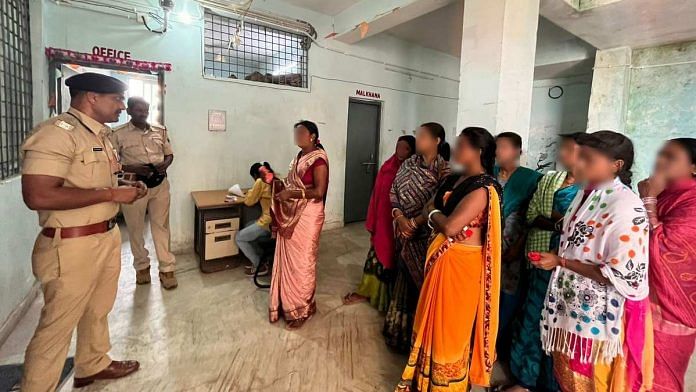West Champaran/Gaya: It was just a thirty-minute ride down a rutted road from the village to the police station, but to 14-year-old Suman and her mother, it was the most difficult journey of their lives. Later, they’d wonder why they’d even bothered.
When the duo arrived in their rented vehicle at the sole mahila thana (women’s police station) in Bagaha police district (West Champaran), they were taken to the station house officer’s room.
There, SHO Umashankar Manjhi listened as Suman told him how a 55-year-old relative had raped her repeatedly, forced her to undergo a dangerous abortion, and was now threatening her even after a panchayat had asked him to pay compensation of Rs 2 lakh.
But, instead of filing a First Information Report or launching an investigation, the SHO sent the mother and daughter back, pushing them to resolve the case with the perpetrator.
In case after case in rural Bihar, ThePrint has learned in an in-depth investigation, women have received similar treatment from the police.
Sometimes, it’s even worse.
In Gaya district, 350 kilometres south of West Champaran, investigating officer Sudhir Kumar allegedly sent the victim pornographic clips from his phone, and pressurised her for sex.
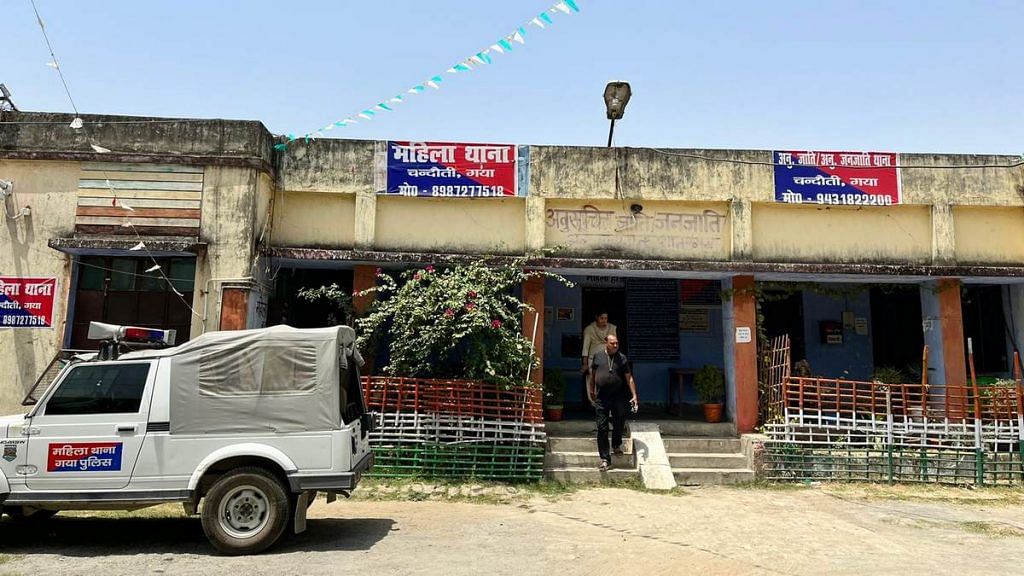
Higher police authorities intervened in both these cases. Bagaha superintendent of police (SP) Kiran Kumar Gorakh Jadhav registered an FIR against Manjhi, who earlier this month was suspended from service pending an investigation. In the Gaya case, Senior Superintendent of Police (SSP) Harpreet Kaur ordered Kumar’s arrest.
Both stories, though, highlight the huge gap between the promise of justice for victims of sexual violence and the reality in many police stations where complainants often encounter indifference, suspicion, or even further victimisation.
Also Read: Father, son and the Kerala court — Bishop Franco is free, nuns now in a silent ‘fortress’
‘The police were our last resort’
A slightly built girl in a patterned kurta, Suman is still a child. She got her period just two months before her assault began— she can’t remember exactly when, except that it was raining at the time.
Her ordeal began when her parents, both daily wage labourers, sent her to the distant relative’s house to help him while his wife was away for surgery. Instead, he attacked her.
“He raped me for three consecutive days and said he’d kill me with a knife if I told anyone,” Suman said, as she sat with her mother in the veranda of their half-built PM Awas Yojana house.
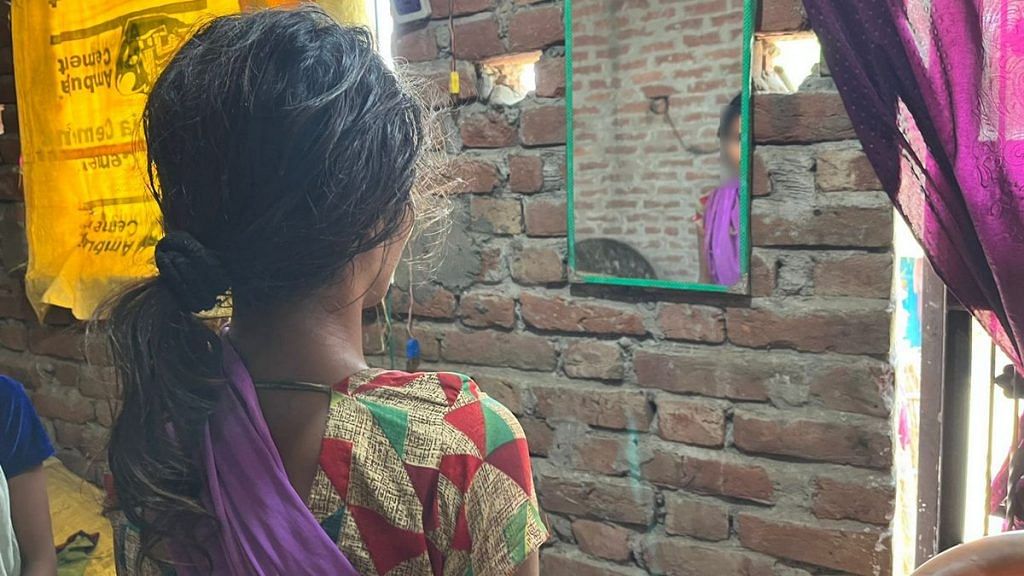
A few months later, it became apparent that she was pregnant. She remembers the winter day, 31 January this year, when the man came to her house while her parents were away and forced her to swallow a pill to induce abortion.
“She was lying on this mud floor and bleeding nonstop,” her mother said. The family, who live below the poverty line, couldn’t afford medical help, so they gave Suman milk to help her get her strength up.
Two days later, on 2 February, the villagers held a panchayat to deliberate upon the matter and concluded that the accused should give the family Rs 2 lakh as compensation — at the very least, it might help arrange a marriage for Suman.
The man confessed to raping Suman and agreed to pay the sum in two months, the written declaration was stamped and signed by the panchayat members.
But, as the time to pay up the sum drew closer, the accused seemed to change his mind and allegedly started threatening Suman and her family.
That’s when the family reluctantly decided to go to the women’s police station, where they met SHO Umashankar Manjhi who discouraged them from filing an FIR and told them to work out the matter with the rapist.
However, a local journalist with News18, Munna Raj, got hold of the stamped paper and published the news about the mahila thana SHO. This reached the district headquarters and immediate action was taken against him.
Earlier this month, an FIR under section 166 of the IPC (public servant disobeying a direction of the law with intent to cause injury) was registered against Manjhi.
‘If you could do it with him, why not with me?’
At Delha police station of Gaya, investigating officer Sudhir Kumar did all the right things at first when 20-year-old Babita registered a complaint about long-term sexual assault that began when she was 14.
IO Kumar filed an FIR and even a chargesheet against the accused in Gaya civil court. Problem was, he wanted something in return, Babita said.
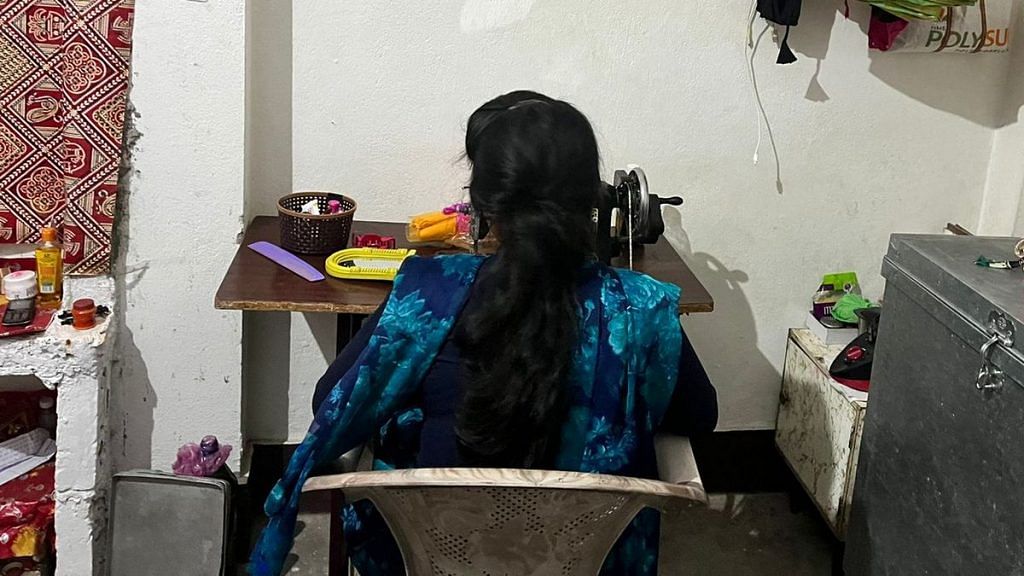
It started out with verbal harassment, she told ThePrint. “He’d say, ‘If you could do it with that man, then why not with me?’ I told him that man was bad… was he bad too?” Babita said.
Kumar started contacting Babita over the phone late at night. “He’d do a video call and tell me to show him my body. But, when he sent me a porn clip, I took it as proof to the SSP.” Kumar was then arrested.
But not everyone has been sympathetic to Babita, particularly since she doesn’t fit the profile of an ‘ideal victim’.
When she was 14, she left her hometown in Aurangabad district with her 45-year-old neighbour and came to Gaya, where he said he’d gotten a job as a personal assistant in the district magistrate’s office. He’d promised her bright opportunities, but instead subjected her to five years of sexual exploitation.
“I asked him to enrol me in school, but he started beating me. I also got to know that he is a peon in a government department. Back in the town, his wife and sons started abusing me. But he would not let me go,” she recalled.
In 2021, Babita finally managed to lodge an FIR against her abuser in Delha police station and started to rebuild her relationship with her parents.
But there, and even at the mahila thana where she complained against the IO later, most cops regard her as a woman with a “loose character” despite her producing evidence.
“She deserves this. What kind of woman leaves her family and elopes with a man of her father’s age?” a woman constable at Delha police station said when asked about Babita’s case. “Woh 420 ladki hai (she’s a cheat).”
On the other hand, there is widespread sympathy for the arrested investigating officer, against whom an FIR was filed under section 354 (criminal force with intent to disrobe a woman) of the Indian Penal Code and sections of the IT Act pertaining to transmitting obscene material.
“Sudhir Kumar is from a respectable family. His wife is a teacher and his sons are also employed in positions. He was learning about smartphones. How would he harass her?” another woman constable who has worked with Kumar said.
Babita is well aware of the rumours about her, but she is unapologetic.
“Yes, it’s true — I ran away with that man thinking he’d get me a job. But does that mean that a policeman can also do gandi harkat (dirty deed) with me? she said, defiant.
“I have my whole life in front of me… if anyone else says something to me, I will complain.”
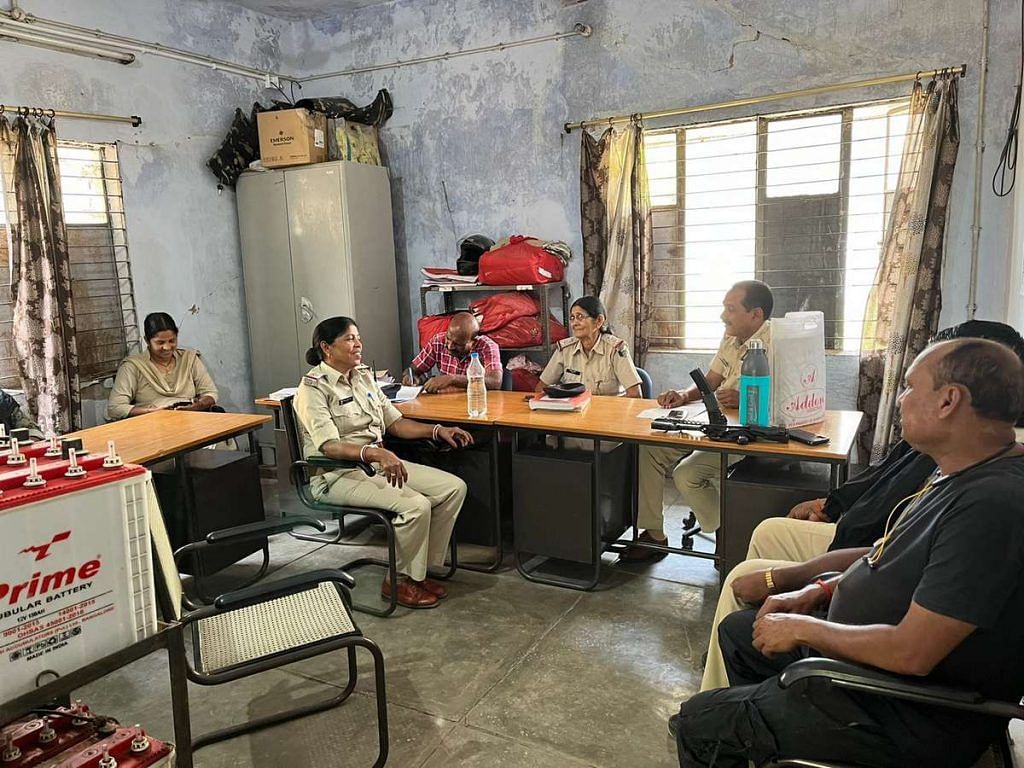
Complaint is registered ‘if woman looks believable’
You can’t believe everything you hear, especially when it comes from a woman complaining about sexual assault — this seems to be a dictum for many police personnel.
At the mahila thana in Gaya, assistant sub-inspector Kamal Nayan explained that victims need to pass a smell test before they are taken seriously.
“If the girl is accompanied by guardians or family members, and the case looks believable, we immediately register a complaint,” he said.
“But, if a girl is reporting to the police all alone, then we have to think about it… whether this is a personal lafda (dispute) or an actual case,” he added.
His SHO Ravi Ranajana, who also investigated the case of Sudhir Kumar, however, differs.
“I have many times briefed my subordinates about sensitively handling such cases but the general behaviour in the society is also reflected in police stations,” he said.
Also Read: Gangraped in teens, visiting courts as grandmothers: 1992 Ajmer horror is an open wound
Few facilities for victims of sexual violence
Bihar has 40 mahila thanas in each police district but even in these, “there is a tendency to believe that it is a fake case” when a woman complains of a sexual crime, another senior Bihar police officer said on condition of anonymity.
In the wake of the 2012 ‘Nirbhaya’ gang-rape and murder in Delhi, the Justice Verma Committee was formed to recommend amendments to rape laws. It also advocated for a slew of measures for police reforms as well as for the proper medico-legal examination of victims.
The committee’s report advocates for the “round-the-clock” presence of a “lady police official” of at least the rank of a head constable at every police station. As soon as a complaint is received, the report said, the duty officer must inform the “rape crisis cell on its notified number”.
The report further elaborates on the need to immediately “make the victim and her family comfortable”. It also calls for providing victims with counselling services that apprise them of their rights, including access to legal assistance, even before they are subjected to preliminary enquiries from the police or escorted for medical examination.
When ThePrint visited the mahila thanas in Gaya and Champaran, they seemed understaffed, lacking basic facilities for victims. Even the hajaat (lockup rooms) for suspects were dusty and used as storerooms.

There was little to suggest that any of the recommendations of the Justice Verma Committee are being followed, either in letter or spirit.
When asked about the lack of provisions to handle sexual assault cases appropriately, a police official, off the record, answered with a non-sequitur: “The focus is the liquor ban. So, we are involved in those cases.”
Nevertheless, the Bihar government has of late been taking some measures to make the police machinery more amenable to victims of sexual crimes. In January this year, for instance, the government announced that with the help of the Nirbhaya Fund — a corpus to help set up initiatives for the safety and dignity of women — it would set up helpdesks for women at police stations. There are no ‘rape crisis cell’ for women in the state.
The state also often emphasises its prioritisation of bringing greater gender balance in policing. Indeed, it is the best in the country with the female strength of the force at about 25 per cent (against a 33 per cent target).
However, this may not necessarily make a big difference, a senior IPS officer said. He gave the example of a case that was reported in the national media last year.
“A DSP was accused of raping a 14-year-old minor in Gaya four years ago. The SSP was Garima Malik — a woman holding the most powerful position in a district. Yet, there was no action against the DSP. In June 2021, his file was sent to senior officials and after much pressure, an FIR was registered,” he said.
“If this is happening in a case where many senior officials are involved, then we can think about what happens in ordinary cases. Women in force will only make a difference when we gender-sensitise them,” he added.
Anil Kishore Yadav, additional director general (ADG) of police told ThePrint, “We have been collaborating with NGOs for our police force training.”
According to statistics released by the National Crime Records Bureau last year, Bihar witnessed an over 10 per cent increase in rape incidents from 2019 (730 registered cases) to 2020 (806). In 2020, there were 110 cases of attempted rapes registered compared to 69 the year before.
More sobering statistics include the pendency of cases in court as well as the low numbers of convictions.
For instance, according to the 2017 NCRB statistics for crimes against women (the data specifically for rape is not available), 56,714 cases were pending trial in Bihar from the previous year. In 2020, there were 81,678 cases. In such cases there were 563 convictions and 2,473 acquittals in 2017. For 2020, with the Covid lockdown further slowing down the courts, there were only 174 convictions and 222 acquittals.
* All names of survivors have been changed to protect their privacy
(Edited by Asavari Singh)


